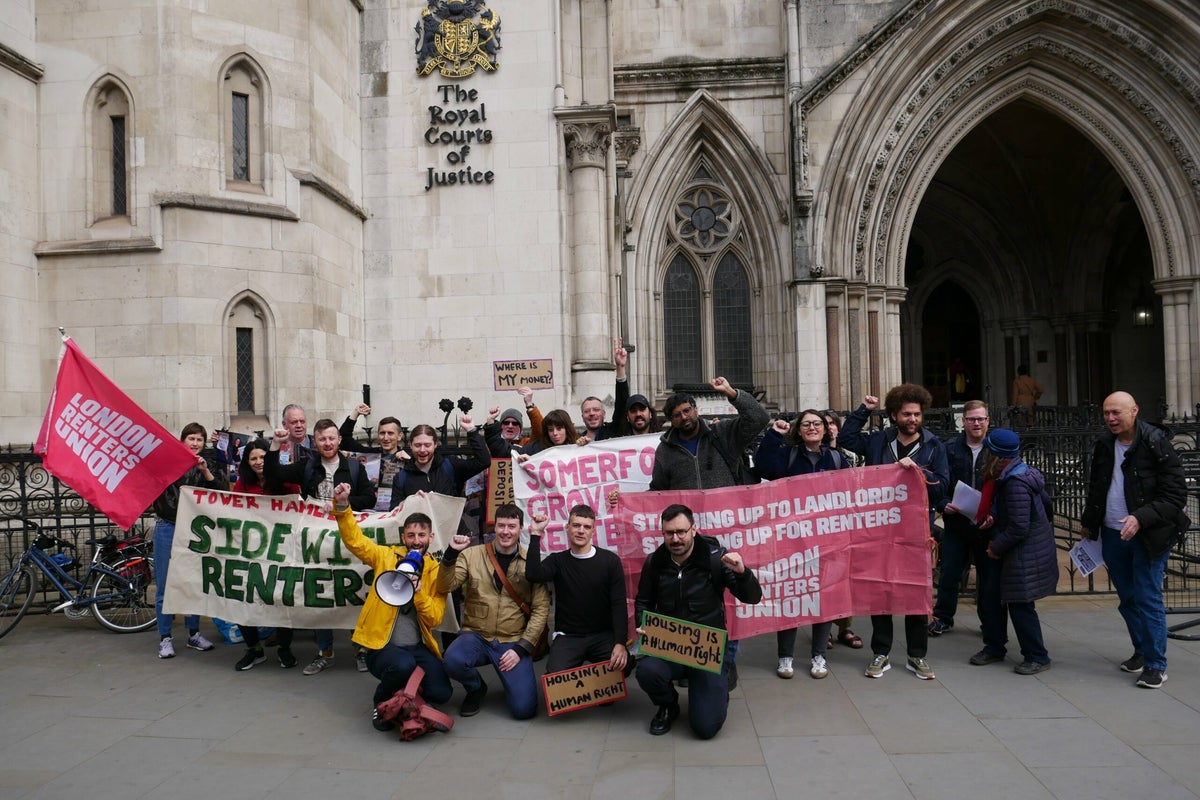In 2024, Brittany Charlton achieved what she now calls “one of [her] main career aspirations”: the launch of a research center at Harvard University’s medical school focused on LGBTQ health.
Opening the LGBTQ Health Center of Excellence had been a goal for Charlton, an associate professor of epidemiology at Harvard’s T.H. Chan School of Public Health, ever since she first stepped onto the Cambridge, Massachusetts campus as a graduate student more than a decade ago. Those aspirations, according to Charlton, required a herculean, years-long campaign to convince the school that such an effort would be worth it. “It took so much advocacy to be able to help the university, and the general public, understand that LGBTQ health and health inequities are a legitimate field of inquiry, that it’s worthwhile, and that it’s fundable,” she told me by phone on Wednesday.
But within the past two months, all that work has been undone. After President Donald Trump’s executive orders seeking to purge diversity, equity, and inclusion (DEI) and transgender people from public life, Charlton was one of the many researchers whose National Institutes of Health (NIH) grants were abruptly canceled. The orders, which she says affected approximately $6 million worth of her grants, forced her to abandon five projects, including one on how anti-LGBTQ legislation such as “Don’t Say Gay” laws, affect the mental health of young people who identified as LGBTQ, and another on the reproductive health of LGBTQ women. The lost funds have also forced Charlton to close the LGBTQ Health Center of Excellence at Harvard, which relied almost entirely on NIH funding—a reality she calls “devastating.”
But Charlton and other researchers are now fighting back as plaintiffs in a new lawsuit, filed in Massachusetts federal court on Wednesday, alleging that NIH’s sweeping cancellations of billions of dollars worth of research and training grants focused on diversifying science were politically motivated and illegal. The complaint—which names the Department of Health and Human Services (HHS) and Secretary Robert F. Kennedy, Jr. as defendants, along with the NIH’s newly sworn-in Director Jay Bhattacharya—alleged that the cancellations of these grants violate multiple federal laws that regulate agencies’ actions and mandate that the NIH fund research addressing health disparities.
One of those laws is the Administrative Procedure Act, which says that agencies cannot act arbitrarily or capriciously. The plaintiffs allege the HHS and NIH violated that law by terminating grants with no valid explanation. Indeed, many of the cancellations—which affected hundreds of projects focused on trans people and race and DEI, according to a public database maintained by some researchers—seem to be a product of a fishing expedition aimed at carrying out Trump’s orders to purge the government of DEI and recognition of trans people. Two of Charlton’s grant termination letters from the NIH, for example, state that “this award no longer effectuates agency priorities”—but do not state what the agency’s new priorities actually are. (Kennedy has claimed the HHS will tackle chronic diseases, safer foods and water, and environmental toxins, but staffers have said that the department has already long prioritized those issues—and they don’t know how they’ll continue to with the agency losing nearly 25 percent its workforce, including through Tuesday’s massive purge.)
The termination notices Charlton received appear to say the quiet part out loud about why the grants are actually being pulled. One of them—focused on LGBTQ women’s reproductive health—seems to reflect Trump’s attacks on DEI: “Research programs based primarily on artificial and non-scientific categories, including amorphous equity objectives, are antithetical to the scientific inquiry, do nothing to expand our knowledge of living systems, provide low returns on investment, and ultimately do not enhance health, lengthen life, or reduce illness. Worse, so-called DEI studies are often used to support unlawful discrimination on the basis of race and other protected characteristics, which harms the health of Americans.” The other termination notice—focused on LGBTQ young people—takes more direct aim at trans people: “Research programs based on gender identity are often unscientific, have little identifiable return on investment, and do nothing to enhance the health of many Americans. Many such studies ignore, rather than seriously examine, biological realities.”
The complaint also alleges the grant cancellations violate the NIH’s own Grants Policy Statement, which says grants can be pulled “if a recipient has failed to comply with the terms and conditions of the award.” It charges that, in targeting research affecting health disparities affecting minority populations and grants aimed at supporting diversifying the scientific workforce, the NIH also usurped the mandate that Congress gave the NIH decades ago to do exactly that. “To exclude from consideration in human medicine the health outcome disparities between one ethnicity or the other, or one sexual orientation or the other, is to strike at the heart of the scientific enterprise,” said Dr. Peter G. Lurie, president of the nonprofit Center for Science in the Public Interest, who is also a plaintiff in the lawsuit.
The complaint also contains the accounts of several early-career researchers who lost funding and other research fellowships dedicated to supporting people from underrepresented backgrounds to pursue careers in science—another one-time priority the NIH is now dismantling.
The case is being argued by lawyers from the American Civil Liberties Union (ACLU), the Protect Democracy Project, and the Center for Science in the Public Interest. Charlton and the other plaintiffs—including researchers at the University of Michigan, University of New Mexico, and the American Public Health Association, which represents more than 20,000 public health professionals—are asking the court to declare the grant cancellations unconstitutional, forcing the NIH to restore terminated awards, and prevent the agency from canceling. more awards in the future. Spokespeople for HHS did not immediately respond to a request for comment on the lawsuit from Mother Jones.
Some of the court challenges to Trump’s power trip since returning to office have, indeed, helped stop or reverse some of the most sweeping changes he has tried to enact, such as his attempts to overturn birthright citizenship and fire thousands of probationary federal workers. Charlton is hopeful that this one, too, could also make a difference. “I think we have to trust the courts to uphold the rule of law,” she said. “They’re necessary to safeguard open inquiry and scientific progress.”
But in the meantime, with her LGBTQ Health Center at Harvard shuttering and projects being abandoned, Charlton says she expects LGBTQ people will directly suffer the consequences. The termination of these grants,” she said, “absolutely poses a threat to LGBTQ communities.”














